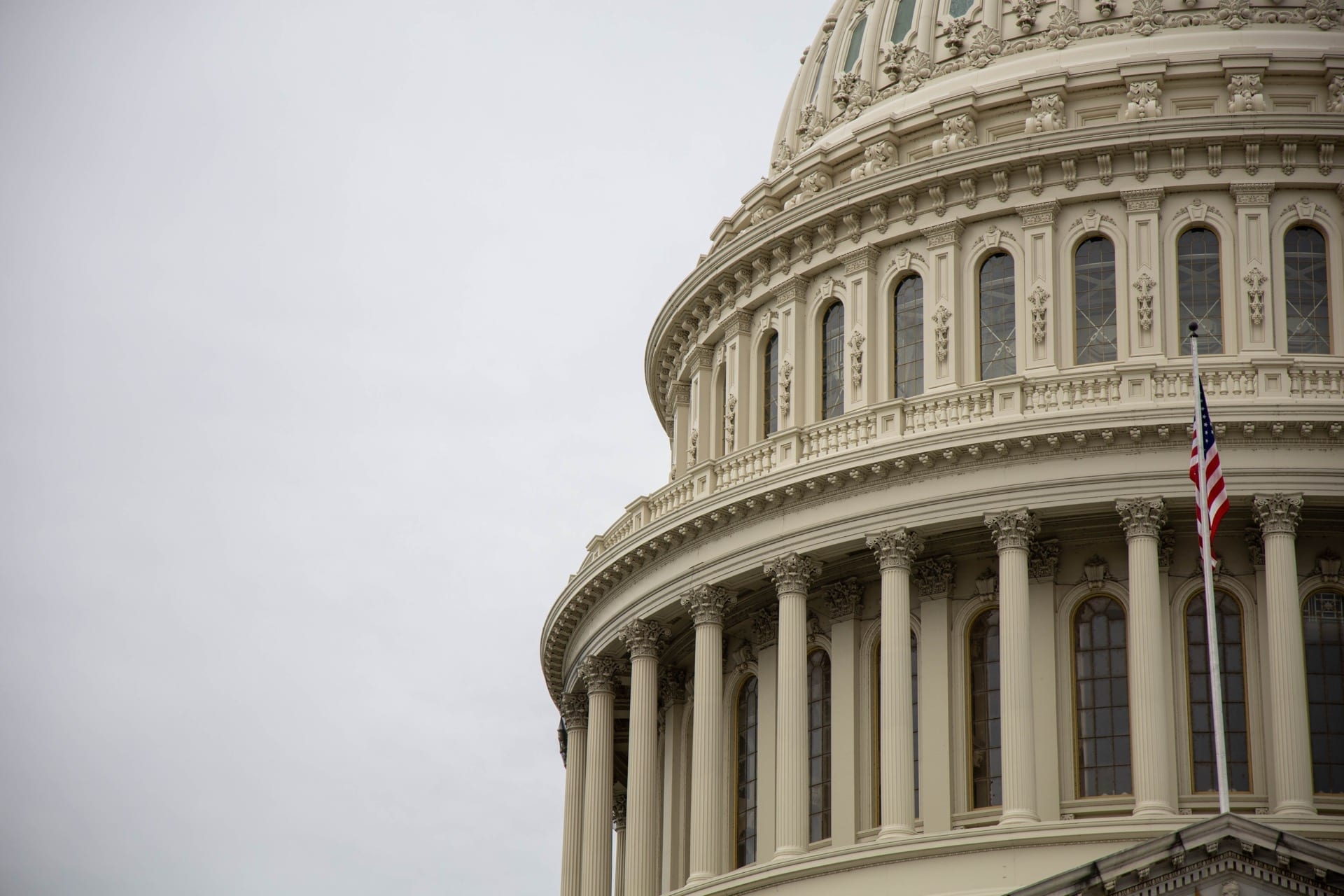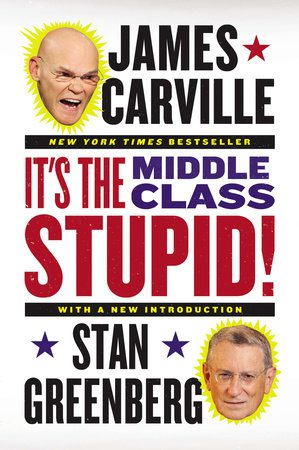At a time when two-thirds of the country says America is on the wrong track and when conservatives are mounting a sustained attack on America’s direction, the country is even more ready to embrace a Rewriting the Rules narrative, agenda and message, according to this new poll with Democracy Corps. Bringing in trade, union representation and banking regulation only adds to the power of these bold changes, first advanced by the Roosevelt Institute nine months ago.
These issues are being debated in the Democratic primary, and all the candidates have endorsed major policy recommendations at the heart of the Rewriting the Rules report. President Obama too has talked about the need “to reduce the influence of money in our politics, so that a handful of families or hidden interests can’t bankroll our elections.” However, he and some Democratic candidates are calling for the country to “defend and build on the progress we’ve made” the past 7 years and saying we need “a sensible achievable agenda.”[1] That is less aligned with the changes the report advocates. That message has allowed the Republican presidential candidates to embrace change and talk about wage stagnation, rising inequality on Obama’s watch, the need for more jobs and trade agreements that don’t hurt America.
In economic terms, the national contest is getting harder. But there is a huge opportunity for progressives to emerge victorious if they lay down the battle lines. We see again and again policies and messages that are framed as checks on corporate power show the greatest potential to drive enthusiasm and unite Americans.
This online poll of 1,200 likely voters shows progressive candidates who embrace an aggressive “Level the Playing Field” message enhanced with progressive positions on trade and unions dominate the conservative candidates with their conservative message and policies.[2] This progressive message begins with frustration this country doesn’t work for the middle class, is governed by “trickle down” economics, and allows CEOs and billionaires to write the rules so government works for them, not you. But in a major new finding, this survey shows that bringing in opposition to new trade agreements written by big corporations seeking to undermine American jobs and incomes and voicing support for union representation so working people can challenge corporate power for higher income elevates both vote and turnout.
The union-centric message performs particularly well with progressive base voters, but candidates should also welcome the trade debate. With TPP and NAFTA very unpopular, especially among independents, the trade-centric message performs particularly well with independents. Bringing trade into the debate also further undermines support for key conservative economic principles overall.
New policies that go beyond Glass-Steagall to regulate the financial sector and break up the big banks further strengthens the progressive economic argument. Adding tough new rules that make “our financial system work for families, small businesses and community banks” gives progressives effective new language on Wall Street reform.
These three additions – strengthening unions, opposing new trade deals and reigning in Wall Street risk – can all be subsumed under the central principle of the Rewriting the Rules report: that CEOs, corporations and big banks have used their power and influence to write the rules in their favor and it’s time to rewrite the rules to level the playing field and grow the middle class.
Finally, this survey settles some important tactical issues that will make progressive messages more powerful:
- Jobs remain the elemental starting point, even more than higher incomes, though an economy that creates more jobs must be buttressed by government policies and greater worker empowerment that allow jobs will pay enough to live on and reward hard work.
- Focusing on the corruption of our government by billionaires and corporate donors is very powerful; though raising the Koch brothers specifically wipes out any advantage in the message.
- Centering on the middle class and bringing in working families sustains our messages, but moving to “ordinary people” and like substitutes weakens it.
These results could not be more timely and useful. They build on research we conducted last fall on leveling the playing field in America, as part of the Roosevelt Institute’s Rewriting the Rules project.
Starting point: voter anger generates conservative engagement, progressive disengagement
Voters continue to say that the country is on the wrong track by a margin of 2 to 1. The progressive base is similarly disaffected, with 60 percent of the Rising American Electorate – minorities, unmarried women and millennials – saying we are headed in the wrong direction. While conservatives have turned this dissatisfaction into engagement, progressives are disengaged. Only 59 percent of the RAE ranks their interest in the election a “10” compared to 68 percent of conservatives. This is the defining challenge of this election.
An offer to build on the administration’s progress is tone-deaf in this context.
Progressive opportunity: tapping into desire for change to move an aggressive agenda
Voters, including the progressive base want change. But the change they are seeking is an aggressive progressive approach, not a conservative approach. A candidate offering a progressive “Level the Playing Field” economic message decisively defeats a conservative economic message by a margin of 11 points, with 37 percent of voters saying such a message makes them much more positive towards the candidate.

It is not surprising that the Democratic race is competitive, given Bernie Sanders’ alignment with this message. It is not yet clear whether Secretary Clinton’s message will evolve to this point.
Voters demand strong Wall Street accountability
Taking on Wall Street risk and changing the way banks work so they protect regular consumers is central to the Rewriting the Rules agenda and one of the most important policy levers at our disposal to change the way the economy works. An agenda that down-sizes “Too Big to Fail” banks but also regulates shadow and high-risk banking and increases enforcement wins dramatically more support than one just centered on protecting consumer banking from Wall Street risk-taking. This bold banking reform scores 10 points higher than one that seeks to pass a 21st century Glass-Steagall Act for our times.
This bold bank reform also heavily outscores the conservative policies that seek to abolish the Consumer Financial Protection Bureau and repeal Dodd Frank. Fully 58 percent of voters support stronger regulation of banks – including ending “Too Big to Fail,” regulating shadow-banking and risky financial products, and enforcing financial crimes – so the financial system works for the middle class, with 33 percent strongly supportive.
In fact, reining in Wall Street risk is one of the most popular policies in the progressive arsenal, second only to enforcing labors laws (64 percent effective, 36 percent very effective) and as popular as investing in infrastructure.

Bringing the trade and union debates center-stage helps progressives
The economists who contributed to the Rewriting the Rules report were clear: strengthening unions and improving the trade system are integral to the collection of policies that would be most effective to address inequality, grow the economy and raise incomes. We cannot rewrite the rules and level the playing field without taking on these issues. The good news is that bringing these issues into the debate – particularly trade – helps progressives.
This survey featured an experimental design in which one-third heard a control “Rewriting the Rules” debate with a back and forth between progressives and conservatives; one-third heard the same debate but with an added emphasis on labor rights, and one-third heard the control debate augmented with a trade discussion. Each split heard both progressive and conservative policies, arguments, and messages. We then looked at three different measures to understand whether the inclusion of labor rights or opposition to trade helps or hurts a progressive candidate.
The first test was the simplest – we looked at respondents’ ratings of the “Level the Playing Field” message. When that message also included an argument about trade or unions, it performed as well or better than the original “Level the Playing Field” message.

The union version performed somewhat better among Democrats, with two-thirds saying it makes them much more positive, compared to 60 percent for the control version and 59 percent for the trade version.
The trade message performed particularly well with independents, with 32 percent strongly supporting the trade message, compared to 29 percent for the union message and 28 percent for the control message. This is not surprising given the hostility independents show towards trade agreements in this poll.

The second test was a regression analysis. Controlling for other factors, the union message had the greatest likelihood of shifting respondents’ votes towards Democrats in the congressional vote; meanwhile, the trade message had the greatest likelihood of becoming more interested in voting in 2016. Together, these messages can increase turnout in a low-enthusiasm election and shift the vote towards progressive candidates.
The third test makes the most of the experiment design of the poll and looks at the extent of support for conservative principles about the economy, growth and government, depending on which arguments respondents heard. Those who heard the trade debate were dramatically less supportive of the conservative worldview on the size of government and tax and regulation at the end of the survey. It seems that joining the trade debate with a plausible policy agenda legitimated a role for government and undermined the idea of small government, in ways we do not fully understand. It also eased some concerns about the impact of policy on small business.

These findings, taken together, show that trade and labor arguments can boost engagement for progressive candidates and can weaken support for conservative policy positions.
Landing the trade argument
The Rewriting the Rules agenda includes key trade policy changes. The progressive policy offerings around better trade deals are more strongly supported than the conservative proposals, with voters giving the most support to the policies vowing to end the deals that protect big pharmaceutical companies that use trade deals to keep prices high and ensuring America maintains sovereignty and the ability to regulate country of origin.

It is clear progressives want a debate about trade and candidates make gains when they join this argument. The most convincing argument in favor of the conservative trade position is less convincing that every progressive argument tested.
Candidates should be against an agreement where corporate interests and CEOs negotiate their benefits in secret, while political leaders fail to look out for American workers: 64 percent of Americans find this argument persuasive, including 31 percent who find it very persuasive. That is more support than the best the Republicans have to offer, with a 10 point lead in intensity. That the agreements have cost American jobs is a close second in persuasiveness. Sovereignty is less powerful as an argument, at the moment.

Making the case on union representation
In the current environment, it is no surprise that unions have a more negative than positive image in this survey. The online panel is a little more negative than the public generally. But that does not mean the progressive policy agenda related to worker empowerment and union representation is not strongly supported by the public when they hear it. Indeed, the policies emerging from the Rewriting the Rules report intended to expand the role of unions in the economy and politics win substantially more support than the conservative agenda backed by a conservative candidate. Those hearing the union version of the “Level the Playing Field” message prefer it to the conservative economic message with a statement about reigning in unions, 62 to 54.
The progressive union policies are some of the most strongly supported policies tested in this survey, and they enjoy much stronger support than the conservative policies. Sixty-four percent think greater penalties for companies that violate overtime and minimum wage laws will produce a better economy, 36 percent say it would be very effective. This puts it alongside infrastructure investment and reigning in Wall Street risk as amongst the most powerful policy ideas progressives have. As a point of comparison, making college affordable scores 10 points lower.
There is strong support for giving people the “legal right to join together with co-workers and negotiate with employers for better wages and benefits,” buttressed by laws against employer retaliation. Fresh language helps strengthen the case for collective bargaining. When we describe the policy as a “legal right to join together with co-workers and negotiate with employers” – without mentioning the words “union” or “collective bargaining” – 55 percent think it would produce a better economy, 26 percent say it would be very effective. When the same policy included the words “union” and “collective bargaining” only 42 percent said it would be effective in producing a better economy. Progressives will win more support for their efforts if they use this more descriptive language.

The challenge for progressives is that the conservative rhetoric has a stronger grip on the public imagination. While the top two progressive arguments are a statistical tie with the top two conservative arguments, the conservative lines have a 10 point intensity advantage.
Progressives’ strongest argument is one that aims to use unions as a check on corporations and CEOs that are only interested in their profits and shareholder payouts, not American workers. This view places the blame for jobs moving overseas on the shoulders of greedy corporate interests, not on union workers. A 53 percent majority say this is a convincing argument, 22 percent very convincing. The second most convincing argument in the progressive arsenal says unionized firms lead to higher wages for everyone in an industry by forcing them to compete for employees.

Settling tactical choices
In an effort to consolidate the progressive community, this survey also settles some nontrivial tactical choices.
Koch brothers. By 55 to 45 voters think ‘Billionaires and corporate donors have unacceptable influence over government’ rather than that ‘Business influences government, but so do labor unions and other special interests.’ But when the Koch brothers are added to the message, the billionaire rhetoric loses its power. The inclusion of the Koch brothers makes the critique look political, and leads to one of the biggest differences in the survey: adding the clause ‘like the Koch brothers’ to the message shifts the balance of opinion in favor of billionaires (46 to 54).

Jobs and raising incomes. Despite the creation of 14 million jobs under this administration and the certainty that we now need to focus on getting jobs to pay more, voters still are hungry for more jobs as the highest priority. They may well equate there being more jobs with more employee choice and market power. In this survey, job creation is the public’s priority over raising incomes by a 34 point margin. With the Rising American Electorate (RAE) – people of color, millennials and unmarried women – job creation is preferred to higher incomes by 30 points. At the end of the day, there is something elemental about having a good job – and that is why a good job has to be at the heart of the progressive project. To have equal power, raising wages should be linked to jobs that pay more.
Inclusive growth over rapid growth. The public has gone beyond the economists’ prescriptions for faster economic growth to growth that is inclusive: “raises everyone’s incomes and wealth, not just those at the top.” They opt for that kind of growth by a 54 point margin. They also prefer improved economic performance that “produces a higher standard of living” to rapid growth by a slightly smaller thought still strong margin (+50). Inclusive growth, however, gets more intense support: 42 percent, compared to 37 percent for improved economic performance.

Middle class. Economic messages gain strength when they are centered on the middle class, though “working families” can contribute as well. The “working families” language has a lot of energy. By 56 to 43, voters say we need an economy that works for “working families” rather than the “middle class” – including a majority of the RAE.

But importantly, when a respondent hears repeatedly about the middle class, the vote holds up against the conservative attack, whereas when the language is about ‘ordinary people’ Democrats lose 4 points in the race.

[1] https://www.hillaryclinton.com/feed/what-president-obamas-legacy-means-me/; http://www.nytimes.com/2016/01/25/us/politics/hillary-clinton-bernie-sanders-democratic-party-iowa-new-hampshire.html
[2]National Web-Survey of 1,200 Likely 2016 Voters. This survey took place January 6- 12, 2016. Likely voters were determined based on whether they voted in 2012 or registered since and stated intention of voting in 2016. Data shown in this deck is among all 2016 likely voters unless otherwise noted. Margin of error for the full sample is +/-2.83 percentage points at 95% confidence. Margin of error will be higher among subgroups.




